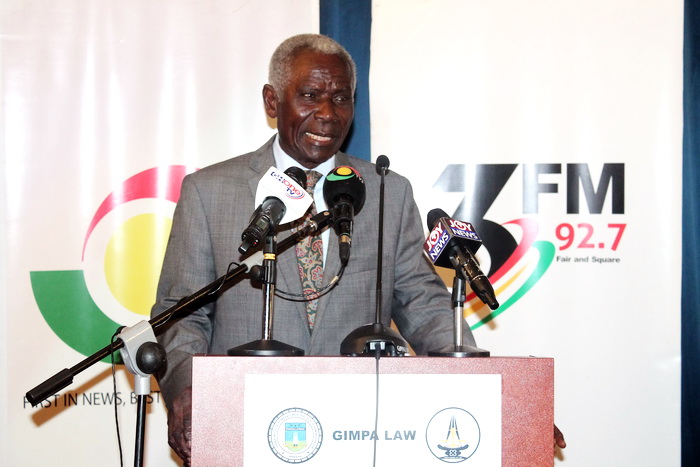
‘Tackle youth unemployment now; it’s a threat to security’
A former Chief of the Defence Staff, Brigadier Joseph Nunoo-Mensah (retd), has said youth unemployment is a threat to the country’s security.
Advertisement
“Thousands of young people are pouring onto the job market from the universities and senior high schools. Many of them have no prospects of finding jobs and that is dangerous.
“We need to tackle this problem now and I believe we can do it,” he cautioned.
He was speaking at the third Accra Dialogue Series organised by the Institute of Law and Public Affairs (ILPA) and the Friedrich Ebert Stiftung (FES) last Wednesday.
The topic for the third dialogue was: “The scars of vigilantism: A legal or a political question?”
Hooliganism
Brig. Nunoo-Mensah said the development had resulted in the youth being enlisted by political parties for illegal activities and vigilantism, which he described as “political thuggery”.
He cautioned further that failure to deal with the phenomenon, which had been with Ghana for as long as the country had practised politics, had resulted in the current experiences.
“Rather than seeing it as a criminal activity and dealing with it as such, we gave it all kinds of colourful names. And no one has had the courage to deal with it until today,” he told his audience.
He noted that what had been happening since the inauguration of the New Patriotic Party (NPP) government in January this year was not new.
What was new, he pointed out, was the brazen courage and impunity with which those groups carried out their illegal activities, to the point of intimidating the courts.
He said the increase in political hooliganism had resulted from the breakdown of discipline and values and the state’s ability to create jobs with the changing times.
“We have relaxed discipline over the past several years and what is happening in the county is the consequence of it. In today’s Ghana, you can see indiscipline everywhere,” he stated.
Brig. Nunoo-Mensah also brought into focus the harsh economic conditions which were pushing the youth to undertake torturous journeys abroad for non-existent jobs there.
“Most ended up becoming slaves, while their counterparts left in the country embarked on any means to make ends meet,” he said.
“That is why many of our youth without skills follow the political bandwagon and when the party they support wins power, they expect to be favoured,” he added.
According to him, when that expectation was not met, they engaged in illegal activities to survive.
He asked politicians to stop making promises they could not fulfil.
He tipped agriculture and social housing as the two sectors to start with to get the youth engaged.
“We can do it!” was the rallying cry of the 80-year-old retired army officer as he concluded.
Civic activism
The Chairperson of the National Peace Council, the Most Rev. Professor Emmanuel Asante, in his submission, urged all Ghanaians to rise up against the phenomenon of vigilantism.
He said legal political acts ought to be distinguished from illegal acts.
The Director in charge of Academics and Research at the Kofi Annan International Peacekeeping Training Centre (KAIPTC), Dr Kwesi Aning, in his contribution, said vigilantism was a “festering sore threatening the security of the country”; while a lecturer at the Political Science Department of the University of Ghana, Dr Alidu Seidu, warned that “if care is not taken, Ghana will face vigilantism capture”.
Suggestions
The speakers were unanimous in their conclusions that vigilantism was criminal and proffered measures to deal with it, including prudent economic management for jobs, improvement in social values, civil society and media activism on the matter and changing the description of vigilantism to hooliganism to capture the nature of the phenomenon.
Organisers of the dialogue, the ILPA and the FES, said the dialogue presented an opportunity to think through the challenge for solutions.
Writer's email: [email protected]




